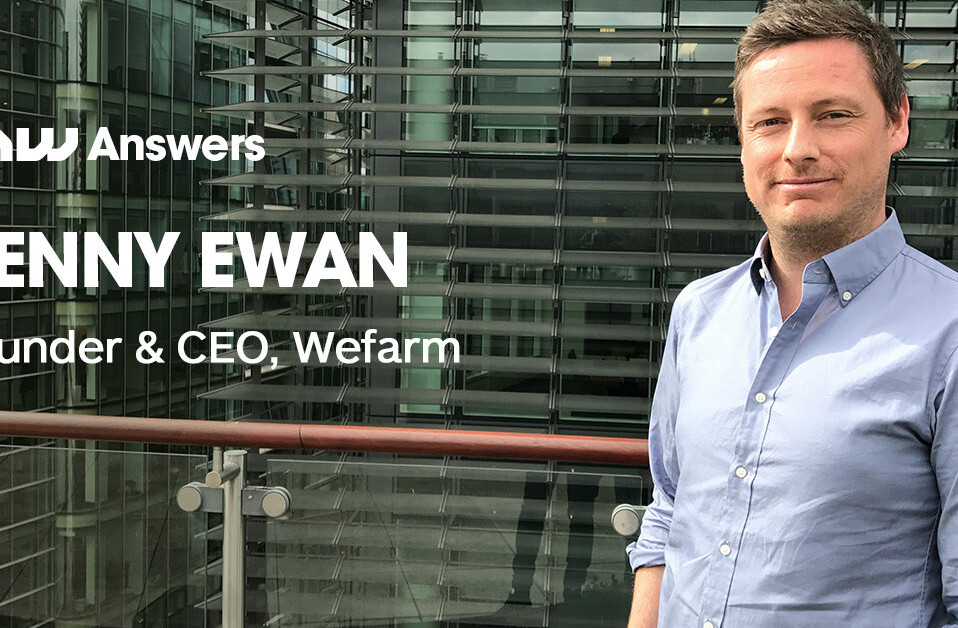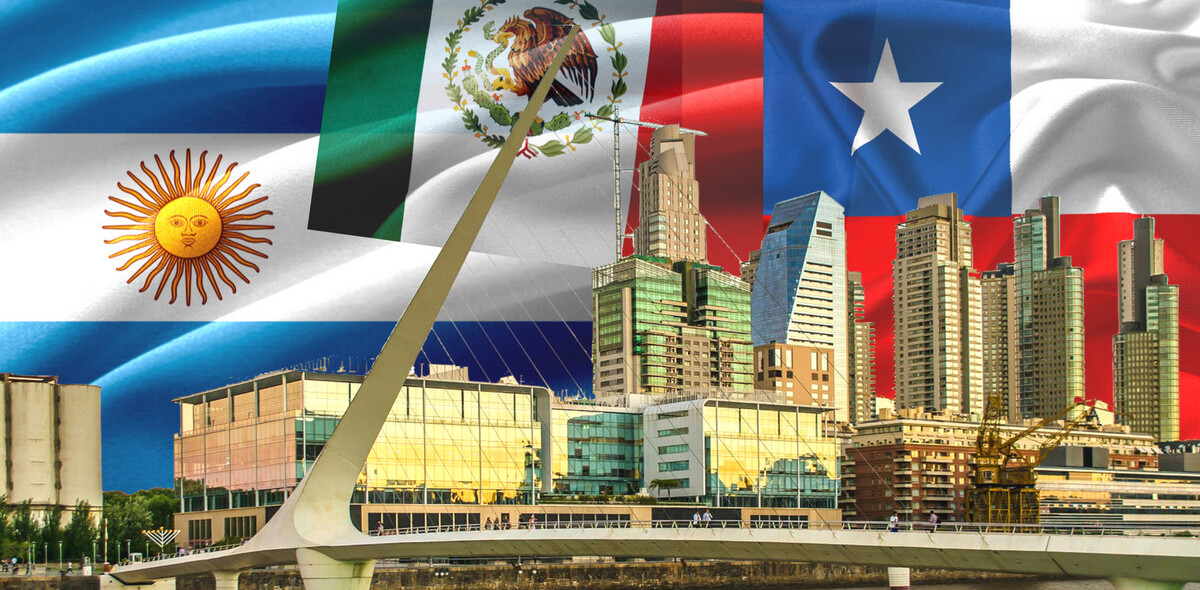
Last week, the Brazilian angel Pierre Schürmann had a meeting with an early-stage startup. Its claimed valuation according to its pitch deck? US$18 million. Its current revenue? Zero. This anecdote is only one example of the gap between entrepreneurs’ expectations and investors’ estimates that some VCs have started to complain about. So should we worry about inflated startup valuations in Brazil?
A call for “valuation sanity”
Although Ted Rogers is American, he has a deep knowledge of the Brazilian startup ecosystem. A general partner at the São Paulo-based VC firm ArpexCapital, he also actively writes on the Brazillian startup scene on his blog that is known among the scene’s entrepreneurs, VC-Brazil.com. It’s a recent article of his (and the discussion it generated) that sparked the idea for this post. Titled ‘Valuation Sanity,’ his blog post stemmed from his “feeling that valuations in Brazil are getting a little ahead of themselves.” As Ted wrote on his blog:
The influx of venture capital to Brazil, while great for entrepreneurs and our venture ecosystem, seems to have brought with it inflated valuations.
Where do “crazy” valuations come from?
While capital is less abundant than in the U.S., there has been a recent influx of money into Brazil, and it is looking for a place to invest. Since there are relatively few companies in the area that are worthy of receiving investment, the relation between supply and demand automatically leads to inflationary pressures; there is more money than places to put it, a rare situation.
Still, not all the reasons behind inflated valuations are based in such simple economics. Since the ecosystem in Brazil is fairly new, many first-time entrepreneurs take their cues from the American market, mainly from its Silicon Valley hub. The problem, according to Ted, is that the two situations are very different. For Ted, this means that equating US valuations in Brazil is a mistake, especially at a time when these valuations seem less and less justified from a ROI point of view.
So is it a problem? Probably not yet
Even though he’s the one who started this discussion about valuation, Ted says he “wouldn’t call it a major or even widespread problem yet in Brazil.” The reason why he isn’t worried? It’s because as far as he knows, and based on the information available, these deals aren’t happening, at least not yet. In other words, entrepreneurs may approach Brazilian VCs with high financial expectations, especially in Rio and São Paulo, but the deals as proposed by the startups are not going through as pitched.
 Indeed, Pierre Schürmann, himself “a very early stage investor” at Bossa Nova Invest, notes that it’s not uncommon for deals to be closed for a quarter of the amount entrepreneurs were initially asking for. In other words, many of them end up adjusting their expectations after getting feedback from potential investors – “a reality check”. In fact, he wouldn’t even call the numbers startups ask for in their initial pitches a ‘valuation’ he says. The actual valuation will be determined by investors, and not by entrepreneurs, he half-jokingly said.
Indeed, Pierre Schürmann, himself “a very early stage investor” at Bossa Nova Invest, notes that it’s not uncommon for deals to be closed for a quarter of the amount entrepreneurs were initially asking for. In other words, many of them end up adjusting their expectations after getting feedback from potential investors – “a reality check”. In fact, he wouldn’t even call the numbers startups ask for in their initial pitches a ‘valuation’ he says. The actual valuation will be determined by investors, and not by entrepreneurs, he half-jokingly said.
Entrepreneurs and investors have different roles
Don’t get Pierre and Ted wrong though: Ted, for instance, insists that the last thing he wants when raising this issue is to offend entrepreneurs. In a way, it’s no less than the entrepreneur’s job to get the best deal they can for their startups. What they should avoid is to get carried away by the “lottery mentality.” While we all tend to overestimate our chances of success, the reality is most startups won’t survive, let alone become the next Facebook or Peixe Urbano.
![]()
At the end of the day, the onus is on investors to keep valuations sane and make sure they get the return on investment they need for their ventures to be profitable. ArpexCapital, for instance, can afford to be a bit more careful than other players. Owned by a small group of partners, it doesn’t have the pressure to invest a specific amount in a certain period of time. It would be able to wait for things to calm down if necessary. As for Bossa Nova Invest, Pierre, who experienced and learned from 2000 bubble, explains there’s not as much money at the early stage he focuses on, which means negotiations are more “reasonable”.
How to estimate valuation
 What’s the best way to estimate how much a Brazilian startup is worth? I decided to ask this question to the angel investor Yuri Gitahy, from the accelerator Aceleradora, well-known for its long experience of the Brazilian market (see our previous story.) A mentor to many entrepreneurs, he also insists that defining valuation is not reserved to investors. Instead, he considers it’s also a crucial exercise for startups, even bootstrapping ones. Although he points out that there aren’t unbreakable rules, he accepted to share with us Aceleradora’s staged view of valuation, in the form of advice for first-time entrepreneurs:
What’s the best way to estimate how much a Brazilian startup is worth? I decided to ask this question to the angel investor Yuri Gitahy, from the accelerator Aceleradora, well-known for its long experience of the Brazilian market (see our previous story.) A mentor to many entrepreneurs, he also insists that defining valuation is not reserved to investors. Instead, he considers it’s also a crucial exercise for startups, even bootstrapping ones. Although he points out that there aren’t unbreakable rules, he accepted to share with us Aceleradora’s staged view of valuation, in the form of advice for first-time entrepreneurs:
- “From idea to prototype: If there’s no apparent value, there’s no valuation to discuss. At this stage, the startup should attract co-founders and technical people who will help develop a prototype with small equity or very small cost – if necessary, seek small chunks of money (10K – 20K) from family and friends. Develop, change, and create a tangible vision translating the original idea into a product or service, but don’t worry about valuation.
- From prototype to traction: Valuation will be 100% subjective on both sides. Aiming for a US$ 1 million post-money valuation is OK when the prototype shows potential, or already attracts a small audience of followers. Angels will be happy if they see a developing MVP, but most VC funds will postpone a serious conversation because the business model is not clear at this stage. Valuation will be proportional to the value of the assets you create: a strong technology, a great team, being a first-mover in a global niche, among others, are great arguments for the next stage.
- From traction to business model: When the audience starts to increase in orders of magnitude, you have already proven your MVP and will probably be able to settle on a business model that brings revenue and increases value. At this stage, valuation will be less subjective and more dependent on your negotiation abilities. Looking for the right VC fund is crucial at this point: it’s better to aim for a US$ 2M to US$ 3M post-money valuation with a strong VC fund on your sector than getting a US$ 5M valuation with a fund that focuses on another sector or has no track record investing on similar startups. This stage is also a nice opportunity window to be acquired by a large player.
- From business model to revenue: Getting paid for what you do is a first, but break-even and profit are more important at this stage. Since profit may take a long time – 2 to 3 years, or more – this is the stage when valuation grows faster, but only if financial results are very concrete. Having a clear business model and focusing on scalability helps define the startup mechanics, and numbers will be easily transformed into a tentative formula on how funding generate revenue and value. Project those numbers over time, and you have a strong case when defending a valuation of US$ 10M or US$ 50M, depending on the size of your market and how fast you increase your share. At this stage, American VCs will have a stronger appetite and will accept higher valuations.
- From revenue to scalability: Startups on this stage have history and track record, so it’s easier to define a clear valuation. They not only have the main revenue and cost drivers from the previous stage, but also references such as EBITDA over time, market multiples, lifetime value of their customers and how acquisition costs impact on revenue and profit. The valuation is easily defended with a Discounted Cash Flow analysis, and all the rest is defined by market strategy and how the startup fits on each VC investment thesis. At this stage, you may even be transitioning from VC to private equity, depending on the numbers you’re seeking.”
Understanding investors
Yuri Gitahy also thinks that entrepreneurs’ expectations will be closer to investors’ as the market matures. For instance, most valuations are currently kept confidential but sooner or later numbers will start to be disclosed on future deals and give Brazilian entrepreneurs a reference in their own market. It’s also likely that more serial entrepreneurs will emerge over time, bringing with them experience and sane expectation. The more experience founders have with the market, the better startups will understand VCs.
 O2Games is one of these companies: one of its partners, Guilherme Emrich Caldas, also founded the VC firm FIR Capital (now part of DFJ’s global network.) Created in 2005, the game development company had already received R$1.5M in funding (US$800k) in its first years of operation. When it decided to raise a new round a few months ago, it based its valuation on data such as the company’s revenues during the year and the capital raised to date, its CEO and co-founder Daniel Coquieri explains.
O2Games is one of these companies: one of its partners, Guilherme Emrich Caldas, also founded the VC firm FIR Capital (now part of DFJ’s global network.) Created in 2005, the game development company had already received R$1.5M in funding (US$800k) in its first years of operation. When it decided to raise a new round a few months ago, it based its valuation on data such as the company’s revenues during the year and the capital raised to date, its CEO and co-founder Daniel Coquieri explains.
Not surprisingly, it worked: the company closed a deal with Pierre Schürmann’s firm Bossa Nova Invest, and Daniel acknowledges that the amount invested wasn’t very different from O2Games’ initial ask. Again, it shows the importance of “understanding the VC mindset” (Yuri’s expression) and basing valuations on tangible, current numbers rather than pure expectations.
Think beyond the money
Perhaps one of Yuri’s most interesting pieces of advice is to “look for the right VC fund.” Pierre Schürmann also agrees: as the market grows and there are more VCs, entrepreneurs will increasingly use other criteria than money to find the right partner, he thinks. Rather than focusing on the highest deal value, they will also consider other factors such as a VC firm’s profile, experience and portfolio, as well as the level of coaching and support it can provide. As Daniel points out, the deal terms also matter: he confesses that while the initial negotiation with Pierre’s firm took two months, it took a further six months for them to agree on long-form contract’s final clauses.
On this note, Daniel would like to share a final thought with fellow entrepreneurs who are raising money:
Beyond capital, what is your valuation of the angel or investor who’s joining your company? In other terms, how much is it worth to have a Pierre Schürmann as a partner? Hence, beyond using your common sense while negotiating and having a strong and firm view on what you really need (in terms of capital), you also need to make a valuation of the potential angel/investor and draw your conclusions.
What’s your view on valuation? Let us know in the comments.
Get the TNW newsletter
Get the most important tech news in your inbox each week.




